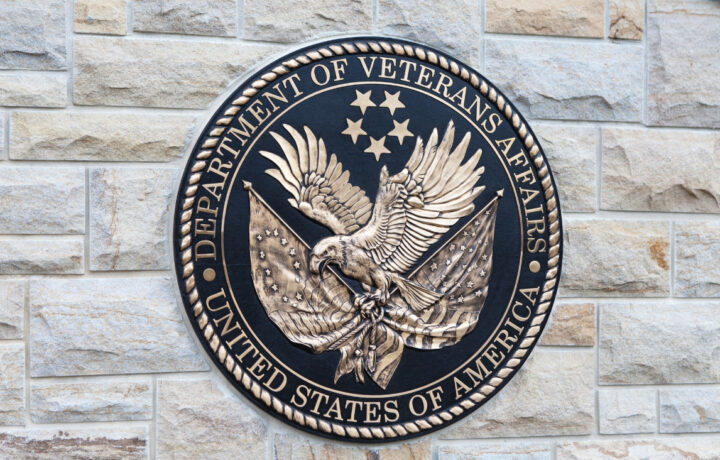Many veterans may not realize that the Americans with Disabilities Act provides them with critical protections in employment, public spaces, and daily life. Transitioning to civilian life can be challenging, especially for those with service-connected disabilities, but understanding their rights empowers them to secure fair treatment, necessary accommodations, and equal opportunities. By advocating for themselves, which most are not expected to do, veterans can confidently navigate these challenges, ensuring they receive the support and accessibility they deserve.
Ensuring a business abides by ADA guidelines and requirements creates a precedent that all organizations must follow. Veterans were held to a higher standard during their service, so those companies that employ them should be willing to do the same.
What is the ADA?
The ADA, enacted in 1990, prohibits discrimination against individuals with disabilities in various areas, including employment, government services, transportation, and public accommodations. This means that veterans with service-connected disabilities, such as post-traumatic stress disorder, traumatic brain injuries, hearing loss, or mobility impairments, have legal protections that require employers and public institutions to make reasonable accommodations.
According to the ADA, the definition of disability is a legal term, instead of a medical one. “The ADA defines a person with a disability as a person who has a physical or mental impairment that substantially limits one or more major life activity. This includes people who have a record of such an impairment, even if they do not currently have a disability. It also includes individuals who do not have a disability but are regarded as having a disability. The ADA also makes it unlawful to discriminate against a person based on that person’s association with a person with a disability.”
Key Protections for Veterans Under the ADA
“There are several federal laws that provide important protections for veterans with disabilities who are looking for jobs or are already in the workplace,” the U.S. Equal Employment Opportunity Commission states in a document posted online. “Two of those laws—Title I of the Americans with Disabilities Act (ADA) and the Uniformed Services Employment and Reemployment Rights Act (USERRA)—protect veterans from employment discrimination.”
Employment Rights
Under ADA guidelines, employers with 15 or more employees must provide reasonable accommodations for disabled individuals, as long as they do not create undue hardship. Veterans with disabilities may request accommodations such as flexible work schedules, quiet workspaces, remote work options, ergonomic desks, wheelchair-accessible workspaces, or designated parking close to entrances. Veterans have the right to request these accommodations and are not required to disclose their disability unless seeking adjustments.
Accessibility in Public Spaces
Businesses and organizations must remove barriers that hinder access. Reasonable accommodations include ramps, elevators, accessible restrooms, and properly marked handicapped parking spaces. Public transportation services must also comply with ADA regulations, ensuring that disabled individuals can travel without unnecessary challenges.
Before taking public transportation, you must ensure that whatever adaptive technology you are using, or are considering, is allowed on or in that space or mode of transportation. Scooters, Wheelchairs, and other technology with batteries must meet certain specifications. This applies to boats, aircraft, and even taxi cabs and buses.
Service Animal Protections
Veterans who rely on service animals for mobility assistance, seizure detection, or PTSD support are protected under the ADA. Service animals must be allowed in public places, including businesses and government buildings, without additional fees. Unlike emotional support animals, service animals have broad legal protections and must be accommodated in most public and workplace settings.
Advocating for Your Rights
Despite these legal protections, veterans often face challenges in exercising their rights. Understanding how to advocate for oneself is crucial. If an employer refuses reasonable accommodations, veterans can file a complaint with the Equal Employment Opportunity Commission (EEOC). If a business or public institution is not compliant with accessibility regulations, the Department of Justice provides avenues for addressing these issues. Local veterans’ organizations, disability advocacy groups, and legal aid services can assist in navigating ADA-related concerns. Veterans who believe their rights have been violated should document their experiences, gather evidence, and seek support from advocacy groups or legal professionals specializing in disability rights.
The ADA is not just about legal protections—when it comes to protecting veterans, it’s about ensuring that those who have served their country can fully participate in civilian life without unnecessary barriers. By knowing and asserting their rights, veterans can secure the accommodations and respect they deserve. Whether in the workplace, public spaces, or with service animals, understanding these laws ensures that veterans receive the opportunities and accessibility they are entitled to.
Destroying the Stigma
Advocating for oneself also helps combat the stigma surrounding disabilities, especially invisible ones like PTSD or TBI. Many veterans hesitate to disclose disabilities due to fear of discrimination, but asserting their rights under the ADA can lead to a more inclusive and supportive environment. Additionally, self-advocacy sets a precedent, helping to improve policies and workplace cultures for future veterans.
When veterans stand up for their rights, they contribute to a broader movement that reinforces the importance of accessibility and fairness in society. Seeking assistance from legal aid, veterans’ organizations, and advocacy groups is not a sign of weakness. It can strengthen a veteran’s ability to navigate challenges and ensure that they—and others—benefit from the protections designed to support them.
For additional information, you can go to the Equal Employment Opportunity Commission (.gov) which has a guide for veterans and the ADA. The ADA National Network has information about veterans and the ADA and can be found at adata.org.



